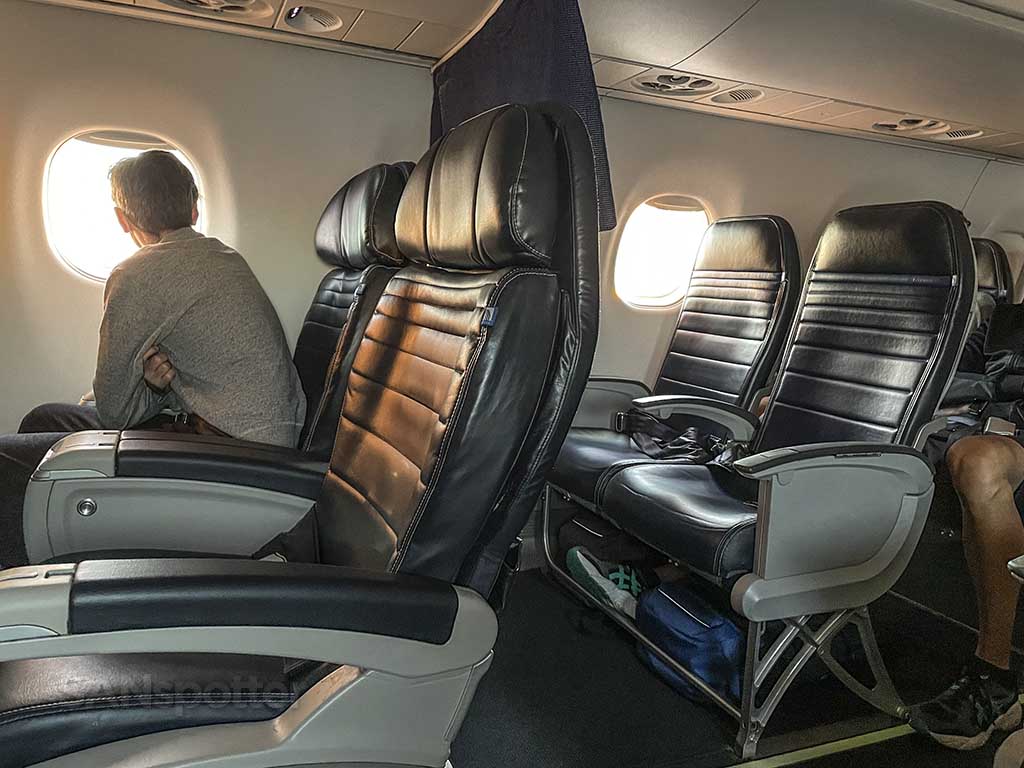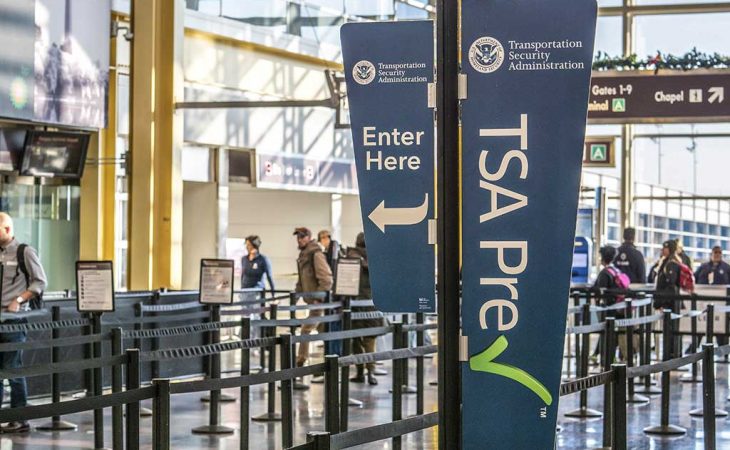Your intentions are pure when leaving for the airport, only to find the pocket knife you recently bought in your carry-on bag instead of your checked luggage.
Once the TSA agent discovers that knife, frying pan, brass knuckle, or whatever prohibited item, expect them to confiscate it. In my experience, it won’t take them more than a few seconds to give you a scolding “you really shouldn’t have brought this” look as they pull you aside. They have no way to help you other than taking away the item.
The Transportation Security Administration screens millions and millions of passengers at the airports every month. They’re really good at finding contraband. So – what does the TSA do with confiscated items?
Well, what happens with the items depends on what it is. They’ll throw some away, sell others, and give away some as donations to non-profit organizations. Basically, you’re never going to see those items again.
What happens to confiscated items?
The TSA doesn’t refer to these items as “confiscated” but as “voluntarily abandoned property.” Upon confiscation, the items become government property, leaving TSA with very little control over them.
The TSA officers sort out the items to separate harmful products such as hazardous and flammable items from harmless ones. They enter everything else, including those left accidentally, into their inventory.
The items then face any of these three actions:
1. Some items get sold
The law doesn’t allow the TSA to profit in any way from confiscated items. However, other government agencies are free to sell such items. Therefore, TSA hands over potentially valuable items to government-operated surplus centers where customers can buy these goods.
Alternatively, the items may end up in government online auction sites such as GovDeals and eBay.
Whatever the government has the potential to earn from these sales determines how they are sold. Additionally, some states use the money generated to run their various programs. It’s worth mentioning that these agencies will never sell illegal items.

2. Other items are disposed of
Items in liquid forms, such as soda, water, and shower gels, are usually thrown away. After all, there’s not much the TSA can do with such items. Also, how would they determine whether or not the products have been tampered with? The only safe thing to do is to toss them out.
Some time back, TSA would sell or donate shampoos and other chemicals. But after careful consideration of the liability risk, they no longer do that.
3. Some items are donated
It’s also common for confiscated items to land in schools, government agencies, or non-profit organizations as donations. Upon receipt, these institutions can either use or sell the items to raise funds for their programs.
One TSA employee all but confirms this on the TSA’s official blog. According to the employee, local schools may receive scissors while police departments may get pepper spray for training (no, you cannot bring pepper spray on a plane). Hospitals may receive some items and sell them to help run their affairs.

What does the TSA do with illegal items?
A different protocol applies to illegal items such as weapons and drugs (yes, airport scanners can detect drugs). If the TSA confiscates such items from a checked or carry-on bag, they alert the local law enforcement agencies who take over the matter. Then, there’s an investigation. For example, if you had a handgun with you; they may take the weapon and arrest you.
The TSA has its hands tied when it comes to decisions to do with illegal items.
What happens with overweight liquid containers?
The TSA confiscates any container of liquid weighing more than 3.4 ounces. The only exception is medication. Flying with medication (in liquid form over 3.4 ounces) may be acceptable as long as you have official written justification from your physician.
In most cases, the TSA prefers that overweight liquid containers go into the trash can rather than get on the plane (as a precautionary measure). But why?
The problem is not with the container, but the assumption is that one is carrying a liquid explosive or a component to assist in building an explosive device while on the flight.

Is it possible to retrieve items the TSA has confiscated from you?
Considering the number of places confiscated things are likely to end up, it’s safe to say retrieving them is next to impossible. My advice is to forget about the item and try to enjoy your flight. It’s easier said than done, I know, but you don’t want to argue with the TSA and end up on a no-fly list or something.
On a related note, arguing with a TSA agent about a confiscated item when you have a warrant out for your arrest is probably not a smart idea. Yes, you can fly with a warrant in most cases. However, depending on your situation, it would be really easy to get nabbed if they pull you aside and start asking questions.
What to do if a TSA agent tries to confiscate a valuable item from you
If the TSA threatens to confiscate an item from you that has great personal or financial value, you don’t have to give it to them. These are your options if you absolutely refuse to hand anything over:
- If sanitary products or foodstuffs are blocked from entry through security lines, you can put them in checked luggage.
- Try shipping the items straight to your office or home. Many airports provide shipping services for this reason alone. In the shipping area, you can purchase a stamp, envelope, and box.
- If your car is at the airport, you may consider locking the confiscated item in it.
- If a friend or family member has accompanied you to the airport to see you off, you can give the item to them and retrieve it after you return.
Do TSA officers benefit from confiscated items in any way?
Some people think or assume that the screening officer just takes whatever confiscated item that pleases them. However, this is not the case. On the contrary, the TSA has a zero-tolerance policy when it comes to such conduct.
If any employee is caught in possession of an abandoned item, the agency regards this as theft. This sort of activity is not tolerated and the employee will be terminated.

How many items does the TSA confiscate?
Every year, the agency releases a report showing how much voluntarily abandoned property they collected. One of the most common items the TSA confiscates is firearms. Most people forget them in their carry-on bags, and the agent has no choice but to take them.
It’s worth mentioning that even when weapons are in checked luggage, TSA may confiscate them. This is a common scenario where you’ve not followed the law in packing or loading.
According to statistics, the TSA confiscates an average of nine to ten firearms a day from carry-on bags.
Other prohibited items that the agency collects include sharp objects such as throwing stars, swords, and knives. These are in hundreds of thousands, if not tens of thousands, every year.
There is no data available from the TSA for confiscated non-weapon items. Nonetheless, we can all guess that these are the most abandoned items at the airport. The the next time you’re passing through airport security, take notice of how many people innocently try to pass through with shampoo or water bottles. Personally, I’ve been “caught” with water bottles more times than I can count.
How can you avoid having the TSA confiscated your items?
If you’re not careful and organized enough, you’ll be in danger of losing your stuff to the TSA.
As you’re suffering the loss of a beloved confiscated item, there are very likely people in local surplus stores rejoicing over your screw-up. Who wouldn’t be glad to buy a quality, dent-free item at a throw-away price?
You can avoid all this by preparing better:
- After packing your carry-on bag, look through the items in there again to ensure they’re allowed. If you’re not sure about something, it’s better to exercise caution and let it go to the checked bag. Alternatively, ship it back home.
- The good news is, TSA has made it even easier for you by providing a list of allowable items and prohibited items on their website. Everything you need to know is listed there (and it’s constantly updated), so there’s no excuse to get stuff confiscated at the security checkpoint.




